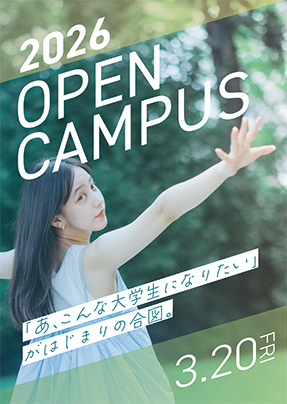Revitalizing Hachioji, the university's "hometown," with the students' youthful energy, ideas, and drive
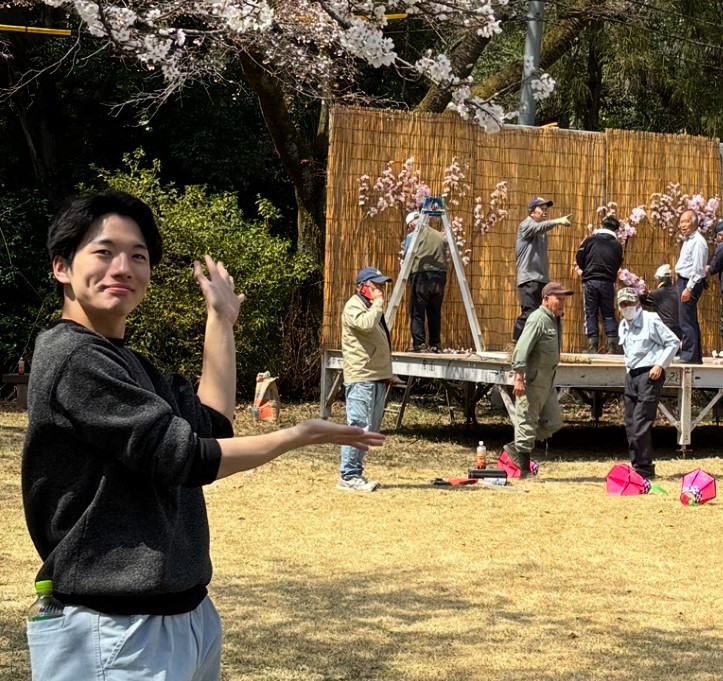
Katsumi Morita
Faculty of Law Department of Law 3 years
Soka University Faculty of Law will change the name of Department of Law to Department of Law and Politics in the 2026 academic year. Faculty of Law has traditionally aimed to train problem-solving skills by linking the legal and political and policy fields. This learning is symbolized by classes where students go to the local community to discover problems and propose solutions. In the Watari Seminar, we asked Katsumi Morita, who is working on regional revitalization and regional contribution in the Kasumi area around the university, about what he learned and the results of jumping into the field of familiar social issues.
Q: What are the inquiry-based classes at the Watari Seminar?
The practical subject is "Hachioji Community Development Fieldwork." In this class, students receive a lecture from a Hachioji city official about the current situation and initiatives in the area, and then split into groups to visit the area and explore and propose their own solutions to the issues that have been raised in the area.
We began our activities with the theme of "Collaboration activities between the university and the surrounding area (Kasumi district)." First, we learned about the history of the area and, to understand the current situation, we were given tours of the area by people from various fields, including residents' associations and NPOs that work to protect nature and history. As we spoke, we learned that, despite the fact that Hachioji is home to 21 universities, not a single student is among the members of these activities. Residents also commented, "The 'younger' members of the association are now in their 40s and 50s. We would like to hear from more young people," highlighting the issue of a lack of young leaders to continue community development.
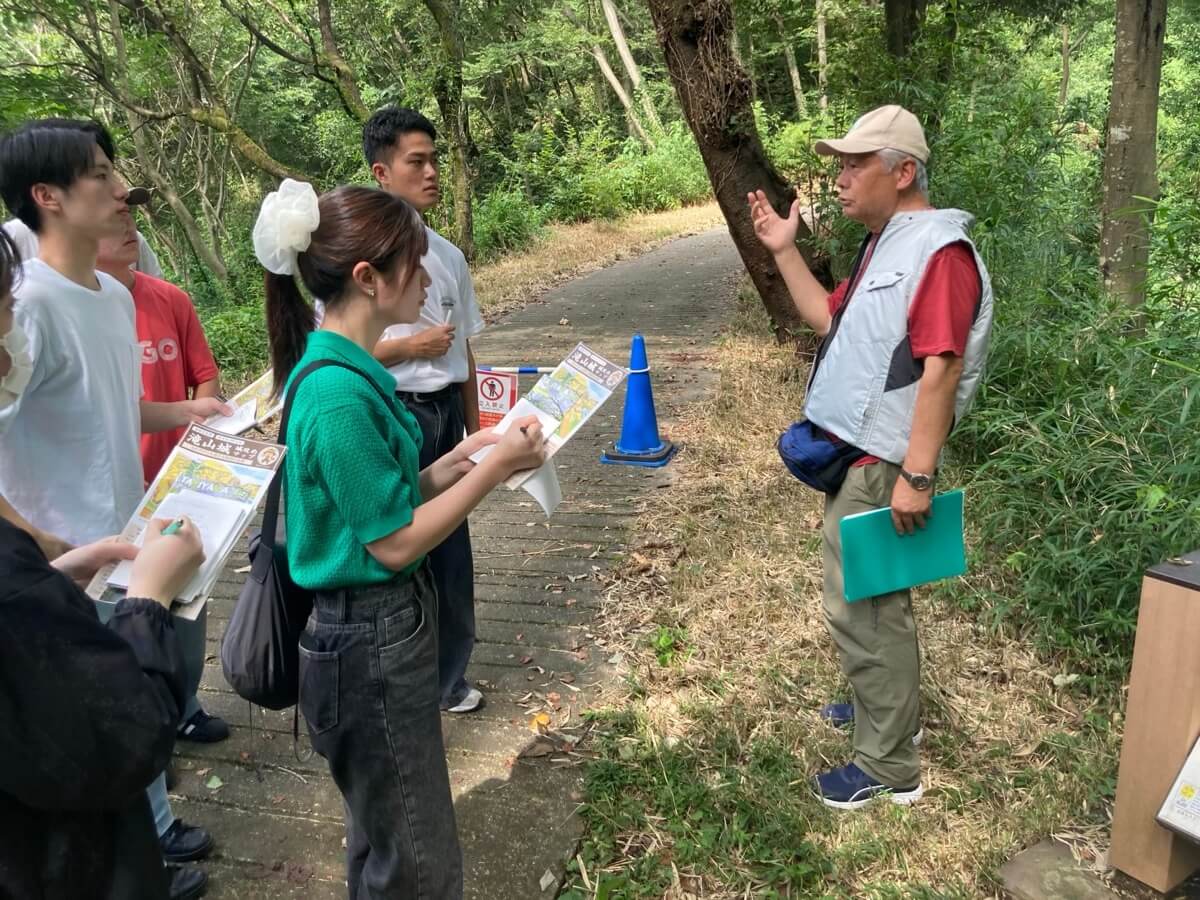
Q: What difficulties did students face in participating in community development?
The hardest part was building relationships with the local community. Even if we students were to make some kind of proposal, our half-baked ideas would be easily seen through. In order to build connections in the community, a meeting called the "Kasumi Junior High School District Community Development Promotion Council," which is centered around local residents, has been held since last year. When we first participated in this meeting, we made a list of the issues facing the Kasumi area and tried to come up with as many ideas for solving them as possible. However, we were harshly criticized by residents for our shallow thinking.
The residents represent various generations and organizations, each with their own unique perspectives, experiences, and backgrounds. They all speak with a deep understanding of various realities. Meanwhile, we students lack practical experience. This may be why, initially, our comments lacked a real sense of reality. However, participating in the Kasumi Junior High School District Community Development Promotion Council required us to convey to the residents our commitment to not just attending, but also to actively participate. At meetings, every comment we made was met with tenfold opposition, but we persevered, offering ideas and engaging in dialogue. Over time, the residents began to acknowledge that the community would not develop if we constantly rejected the students' opinions, creating an atmosphere in which we all sought to find the best possible solution for the community. By actively participating in meetings, from the pre-meetings to deciding the content and serving as moderators on the day, we felt that trust gradually grew. Furthermore, at the promotion meeting held in August, in addition to our seminar students, many students from Tokyo Junshin University and those who participated in this year's fieldwork also attended, with nearly half of the participants being students. Although it is happening slowly, we are able to get a real sense that students are becoming more involved in the local community.
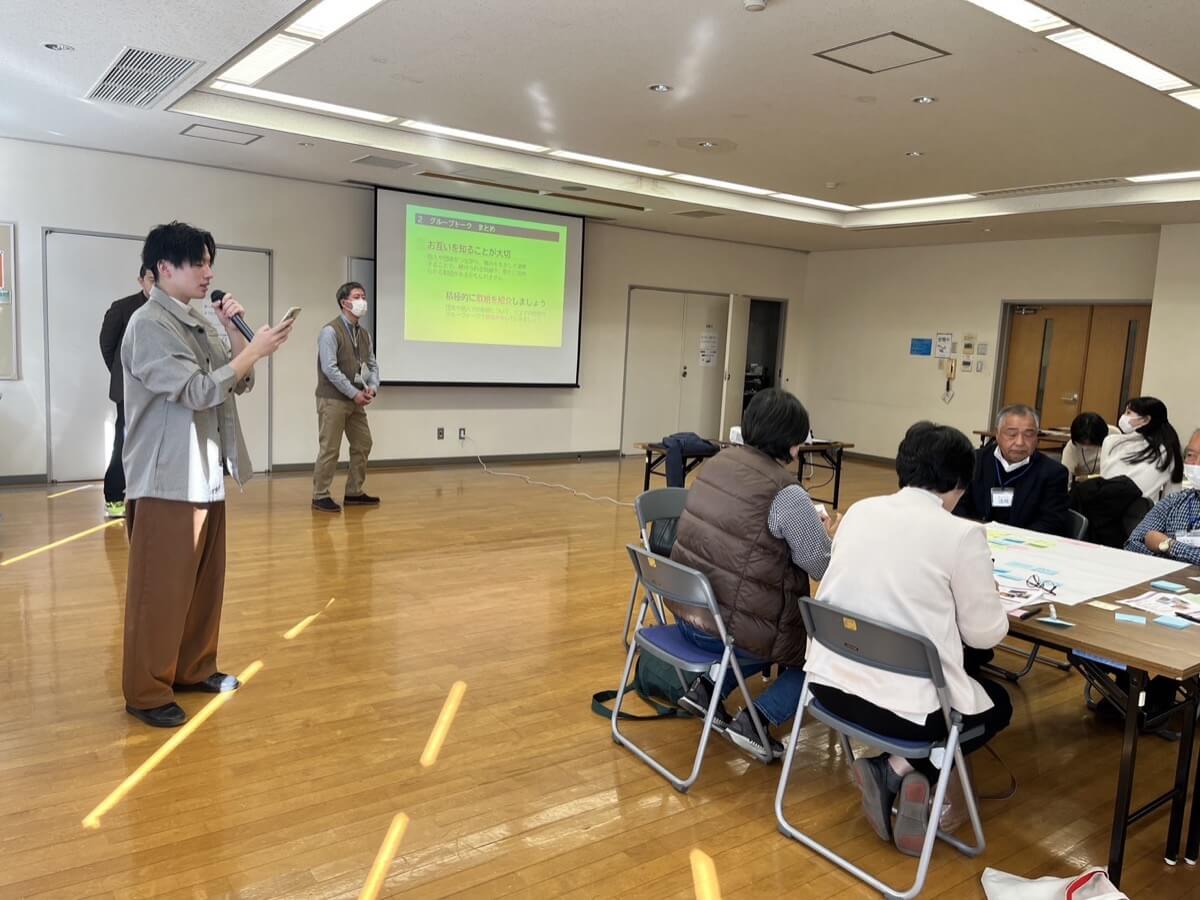
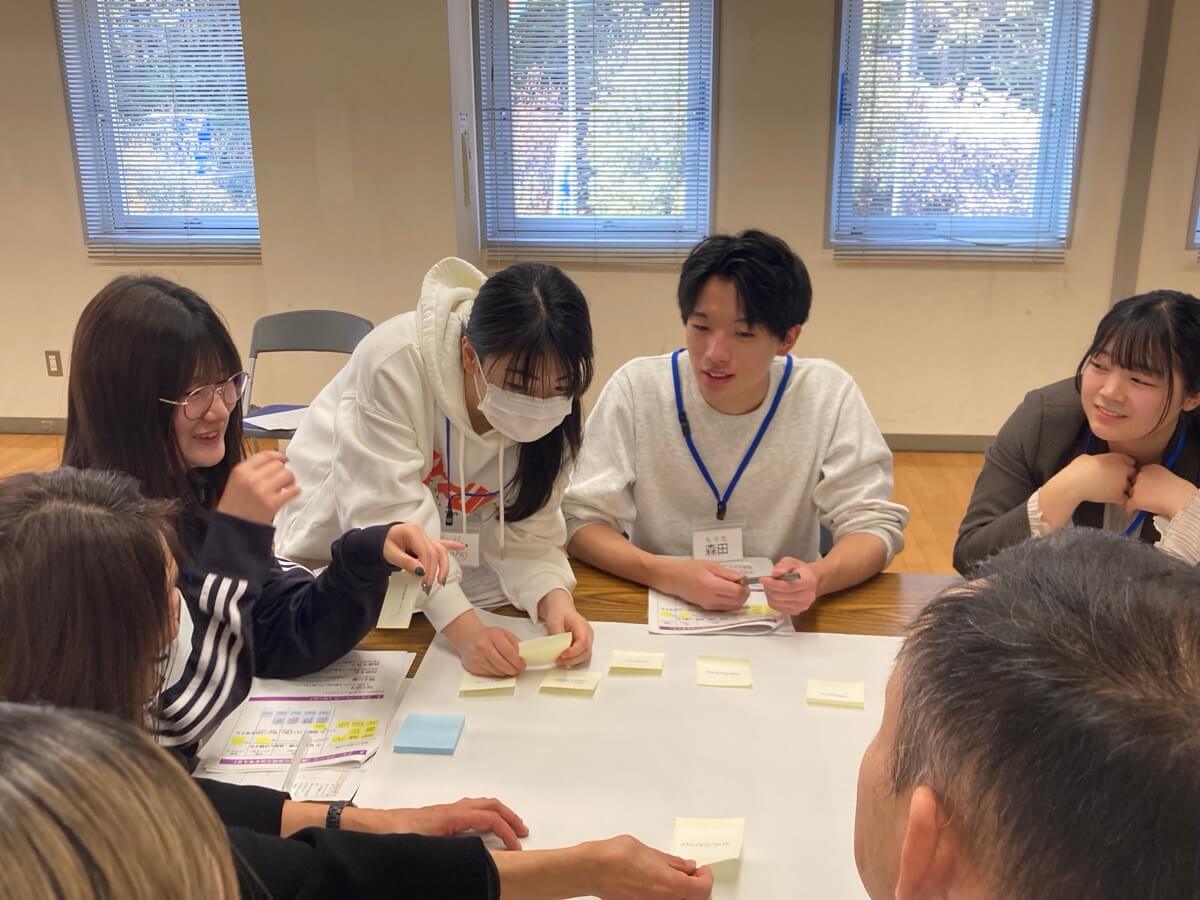
Q: What decisions have been made so far and what initiatives are currently underway?
To address the lack of local leaders, we proposed a solution: "Establishing a student committee specializing in the Kasumi area," which was well received. While we have only recently begun preparations to launch the student committee, we believe it will play a fundamental role in building relationships with local residents. Furthermore, to broaden this activity beyond Soka University, we are also inviting students from Tokyo Junshin University to participate, and we will plan events that bring together local residents and Soka University students. This initiative has already been implemented, with regular badminton tournaments and food gatherings. Furthermore, students from the Watari seminar participated exclusively in the Cherry Blossom Festival and Civic Center Festival, held annually at the Takiyama Castle Ruins, helping to organize the event. They made amazake (sweet sake) and pork soup, and grilled scallops, deepening their connections. Furthermore, at this year's Hachioji Festival, we served as a water supply attendant for the local Bon Odori dance team, "Kasumi Mayunokai."
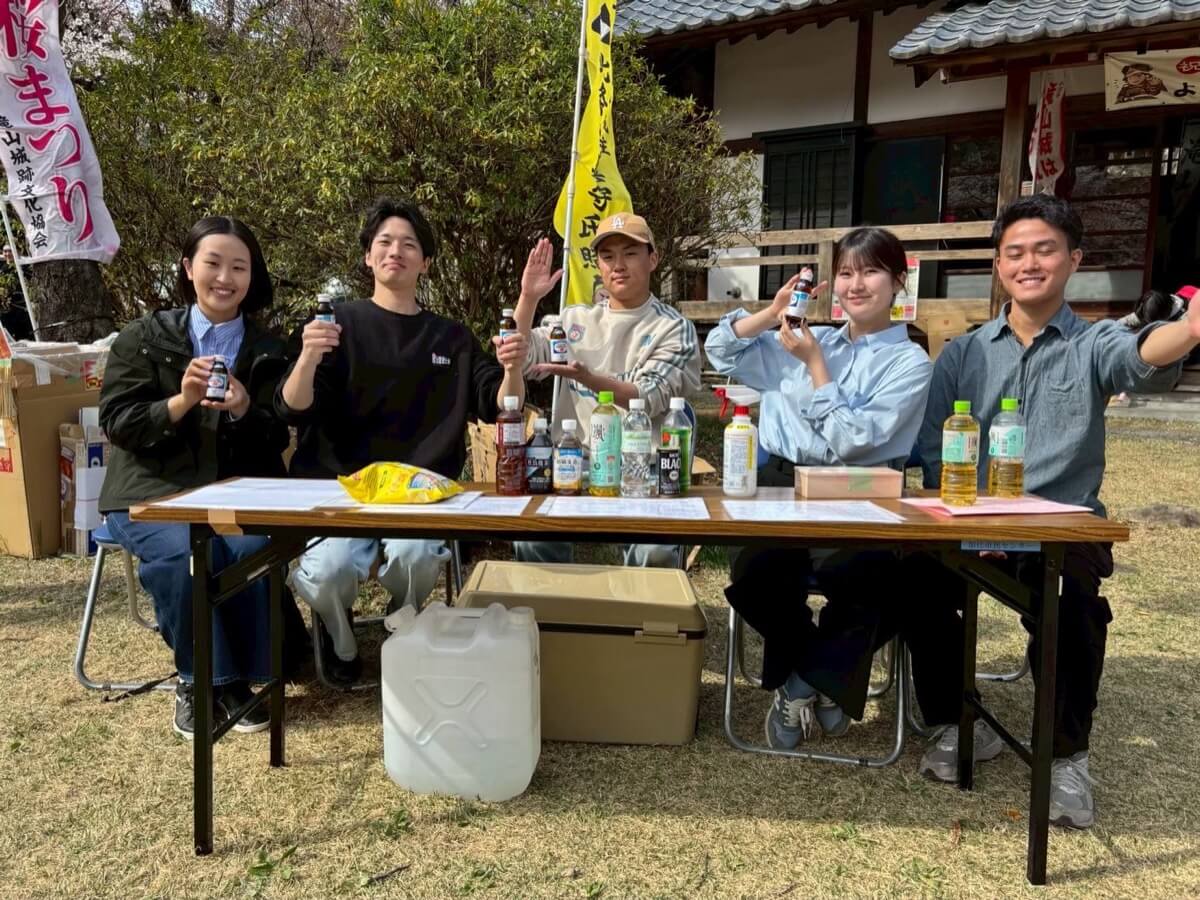
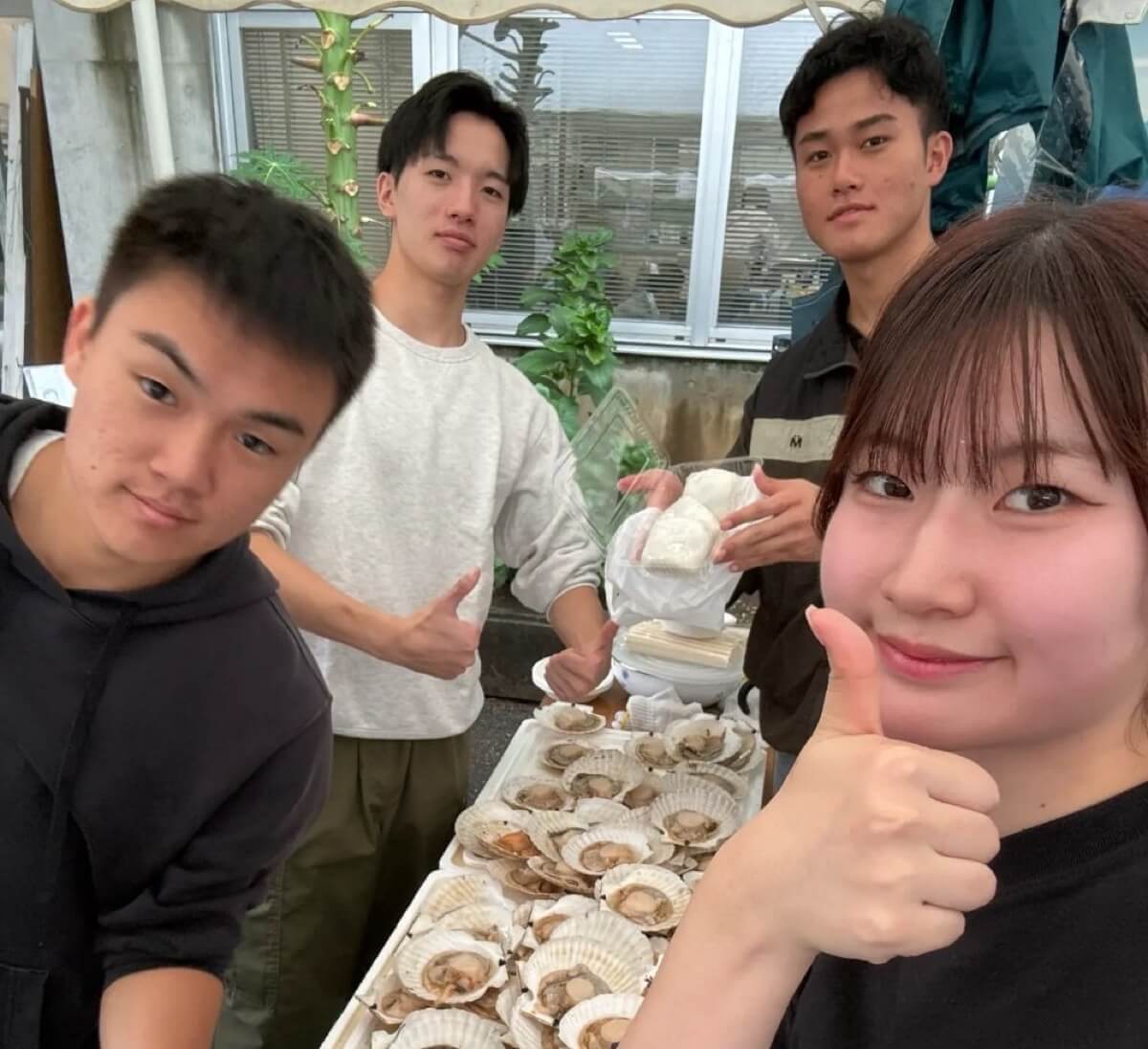
Q: What was the reaction from local people to these activities?
When I first attended the promotion meeting, I felt a sense of pressure, as if people were looking at me with furrowed brows, asking, "Who are you guys?" But as we met and talked together, smiles gradually began to appear. I learned that in order to gain trust, it is important for students to take the initiative and show what they can do, and that if they can do that, they will be accepted.
Also, when we participated in a local event, people said, "It was a great help to have the students there," and I got the impression that the atmosphere was brighter. Organizers also expressed their hopes, saying, "We were concerned that the content of the events was becoming stale, so we hope that the students will liven up the event with new ideas and values." Building these kinds of relationships is essential to getting the Student Committee on track, and I feel a sense of accomplishment, and more than anything, I've started to enjoy it myself.
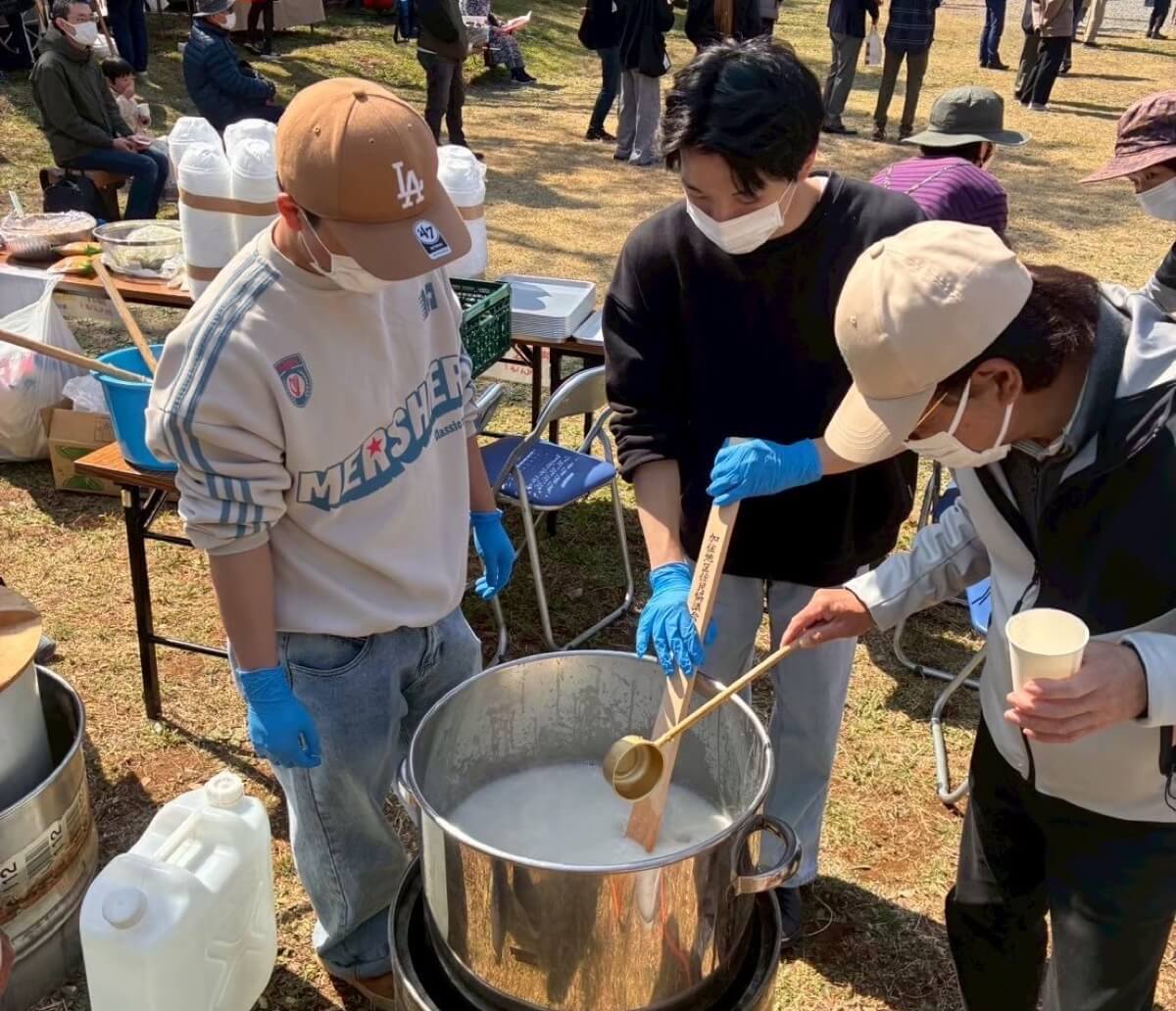
Q: Have you ever felt that your proposed activities were recognized?
The University Consortium Hachioji has selected the local activities of the Watari Seminar for a student-planned project subsidy for fiscal year 2025. Located in the academic town of Hachioji, the University Consortium Hachioji is a collaboration between 25 member schools, including universities, junior colleges, and vocational schools, as well as local residents, businesses, and government agencies, and is carrying out six projects aimed at revitalizing the community. One of these projects, the "Student Activity Support Project," involved the idea of "Establishing a Student Committee," which was selected for the student-planned project subsidy.
The Student Committee is planning to organize an exchange event with local residents that will involve other universities, and we hope to use the grant money for preparation funds. In today's world, many young people place importance on taipa (time performance), so we think that incentives may be necessary to get more people involved. However, we have learned over the past year and a half that simply gathering people for short-term gains will not lead to sustainable activities, so we hope that the incentive will merely be a catalyst to create even deeper connections between students and local residents.
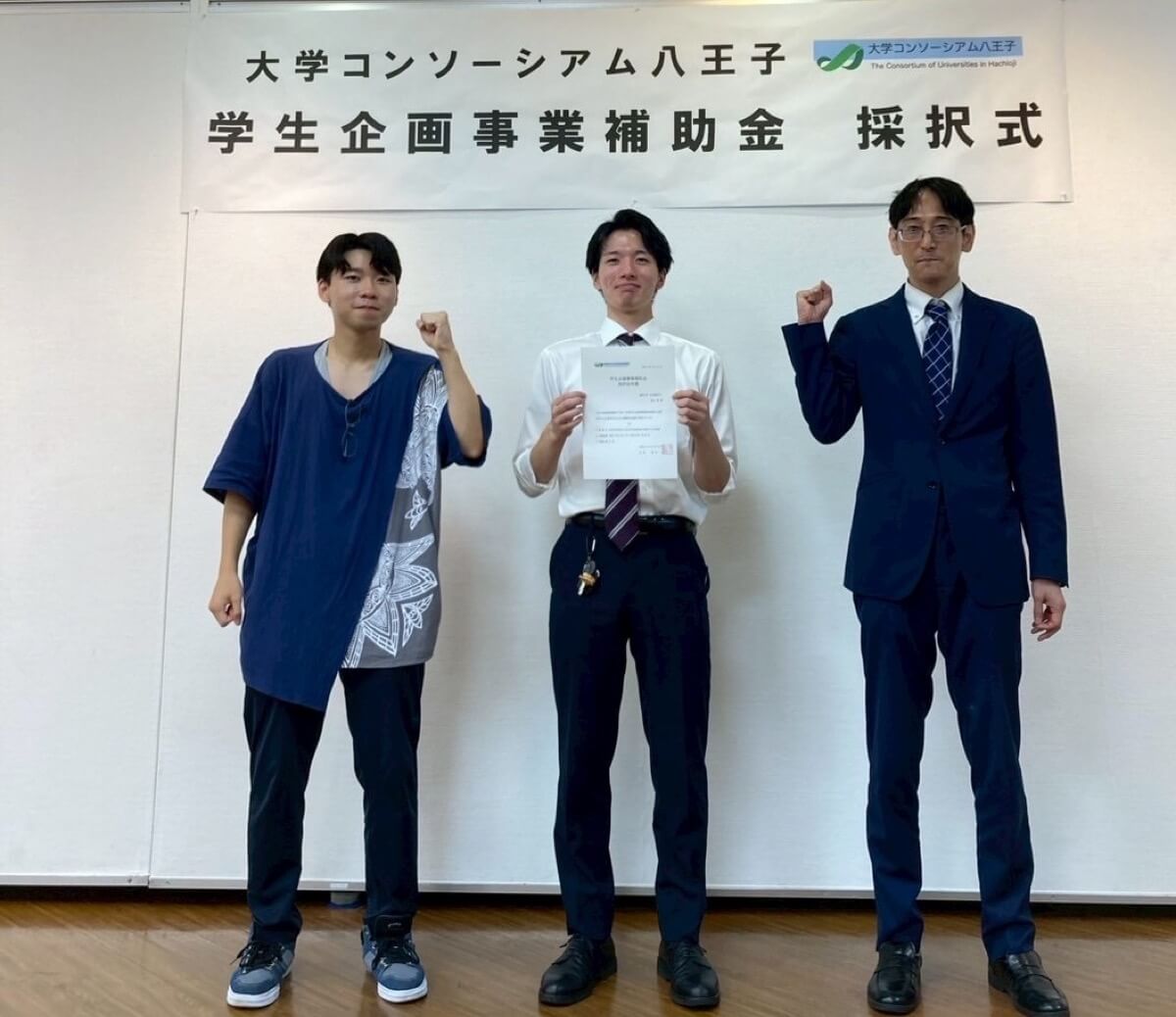
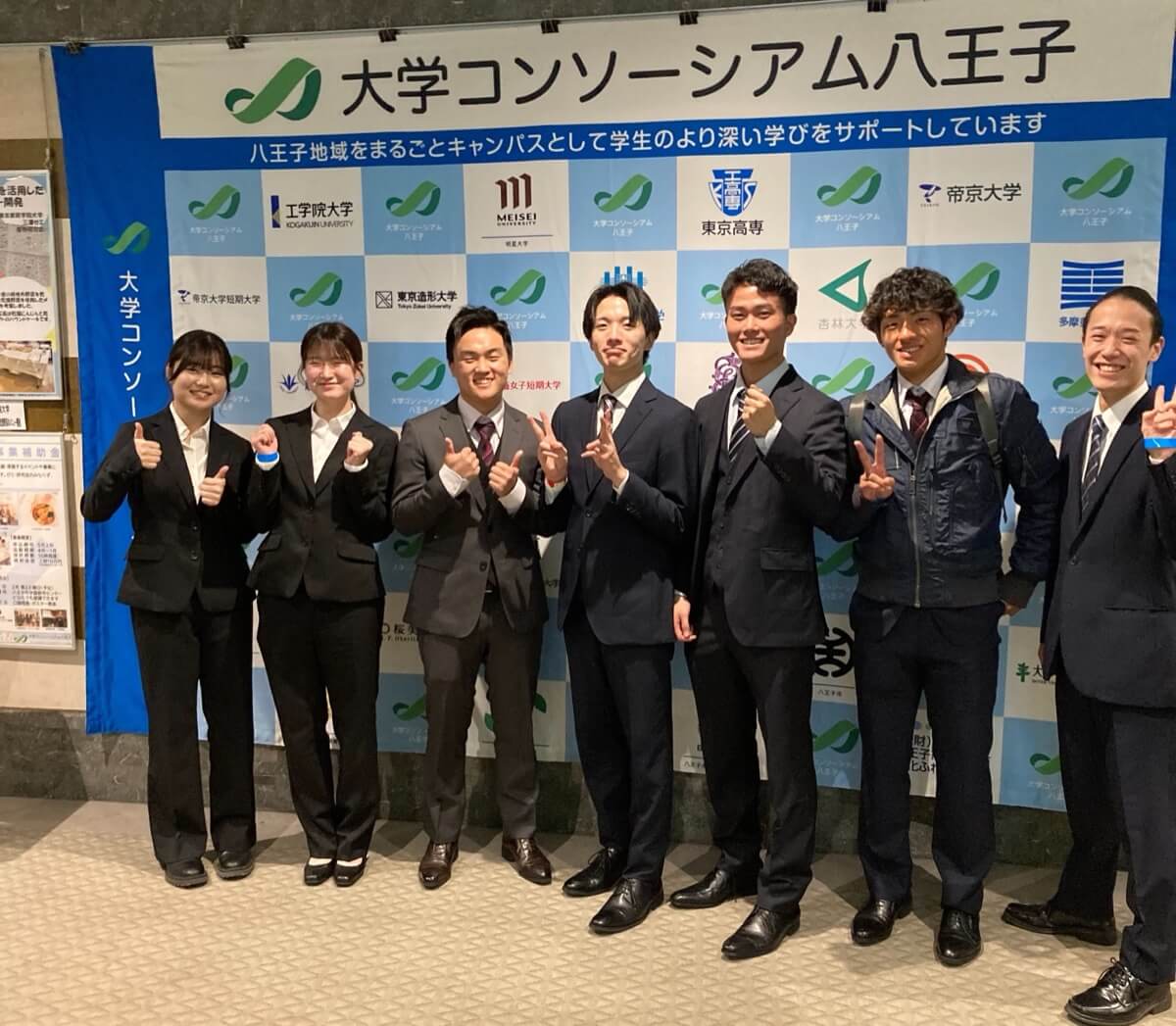
Q: What is interesting about community development and community contribution?
Each region has its own unique shape, and in an area that cannot be boxed in, we will explore ways to make everyone smile by utilizing the characteristics of the region. I am excited to be involved in this. And I'm not the only one who feels this way. In fact, an increasing number of students other than those in the Watari seminar are participating in the Kasumi District Community Development Promotion Conference and events, and when they attend pre-event meetings, they say things like, "This is kind of fun," which I think speaks to the excitement of being involved in community development and contributing to the community. Depending on how you get involved, the shape of the community can change in various ways, and I find that very romantic.
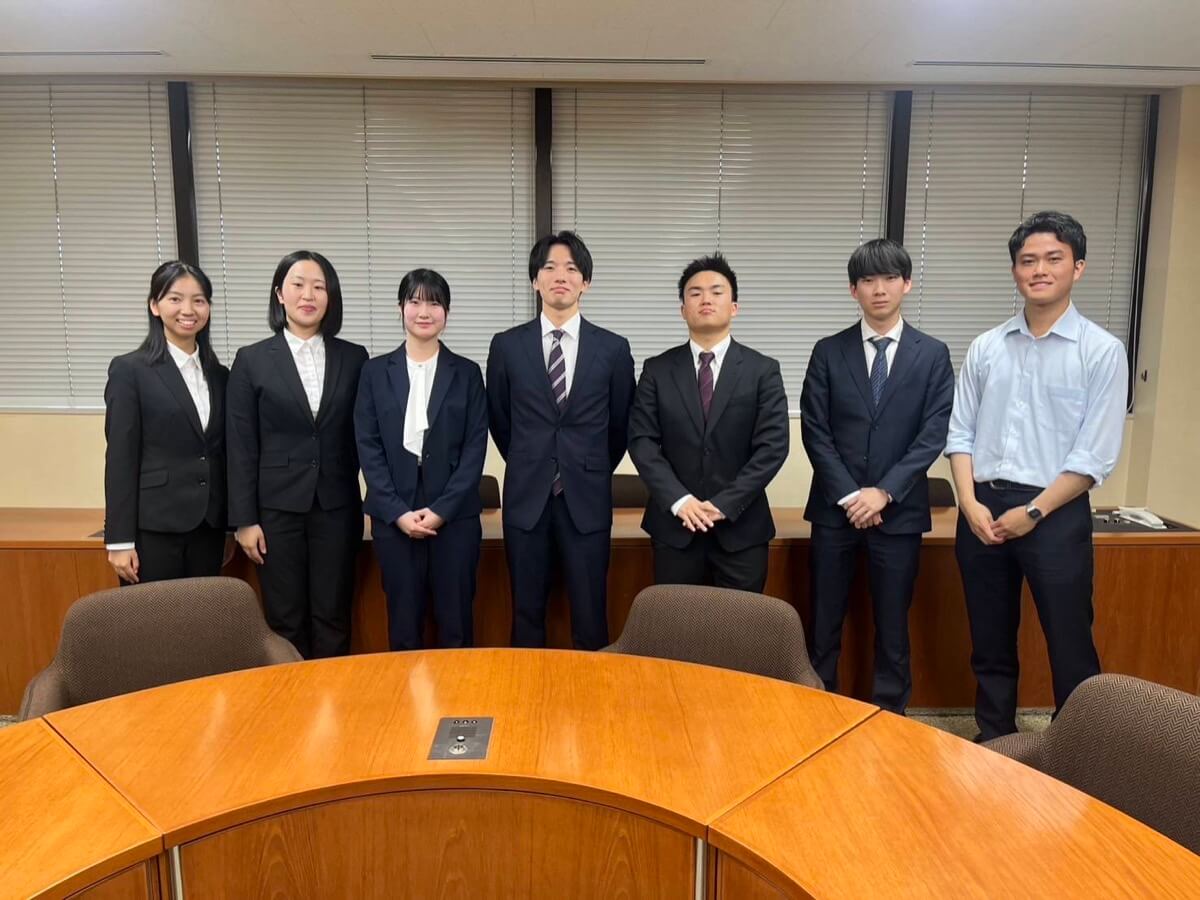
QPlease tell us about your future plans and your enthusiasm.
In collaboration with Tokyo Junshin University and Kogakuin University, which are geographically close to Soka University, we will work to solve local issues and aim to revitalize the region by holding events and other activities. In the process, we would like to further deepen the trust we have built with local residents and transform the city into one built by students, and ultimately we would like to see student-participation in community development throughout Hachioji city. Personally, I would be happy to serve as a bridge between Hachioji city, students, and residents, and become someone they can turn to when they say, "I want to do this, but how should I go about it?"
Q: Please give a message to your juniors who are aiming to enter Soka University.
Soka University has many hidden charms that are not visible to the eye. When I first entered the school, I chose Faculty of Law out of some interest, without any specific dreams. However, many of the students who attend Sodai are doing their best to achieve their dreams and goals, and like everyone else, I was inspired to "do something hard." First of all, I started to act little by little from the rough thing of "I want to do this", and I am blessed with many connections through the Japanese foot seminar classes, and I am living a fulfilling life. In the future, as a civil servant, I also had the goal of contributing to community development.
If you approach even the smallest things with a positive attitude, one encounter can become a fate and lead to big results. First of all, let's take a step forward by putting your head on something that interests you even a little. Nothing is meaningless. If you continue to challenge and adventurous, you will definitely be able to open up a path! Let's keep learning together!
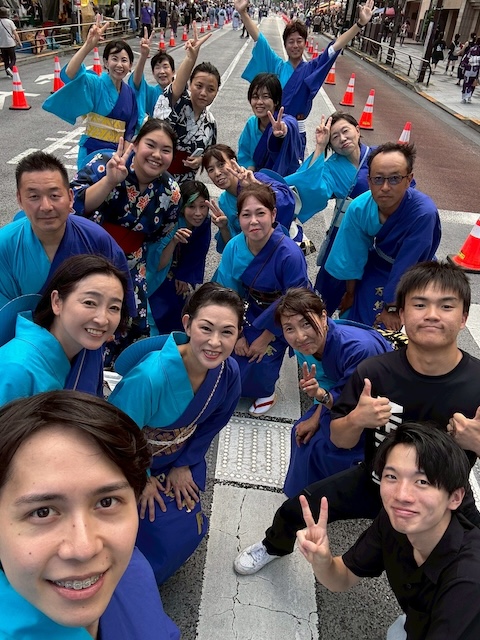
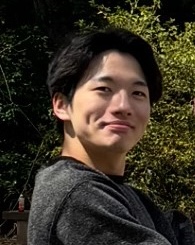
< Faculty of Law Department of Law 3 years>
Katsumi Morita
Morita Katsumi
- [Favorite saying]
- Kindness is not for the benefit of others
- [Personality]
- Frequent switching between active and passive
- [hobby]
- Listening to Yuzu songs
- [Books I've read recently]
- 1778 stories dedicated to my wife / Taku Mayumura
Pickup
Passing the difficult Tokyo Metropolitan Government employee exam: 4 years of growth fueled by setbacks
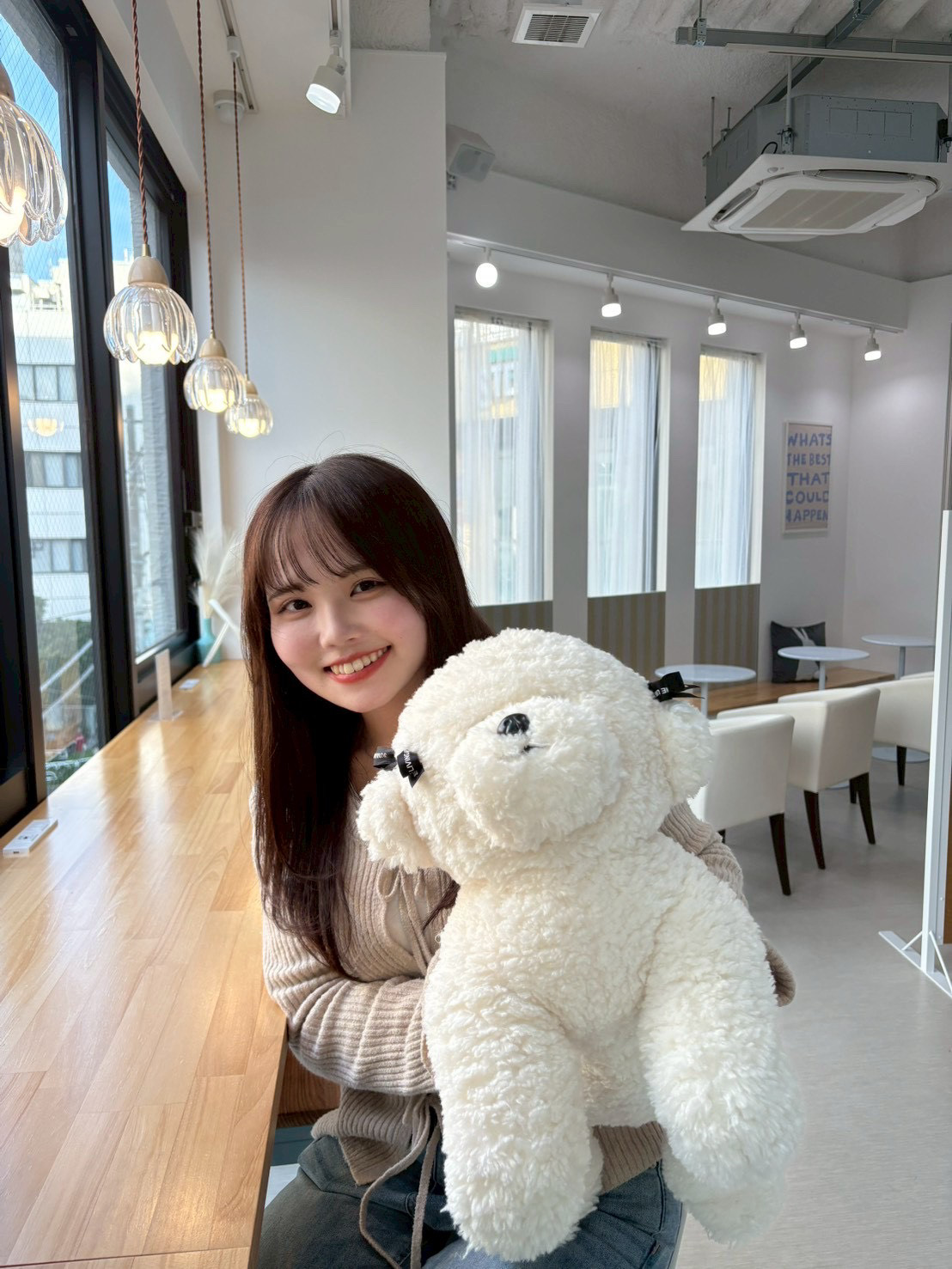
Learning Russian and building a bridge of peace in these difficult times
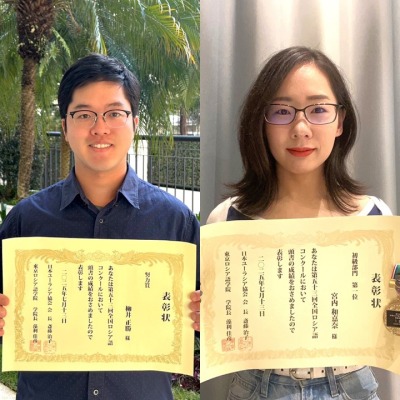
Halal food truck sales realized from multicultural coexistence exhibition
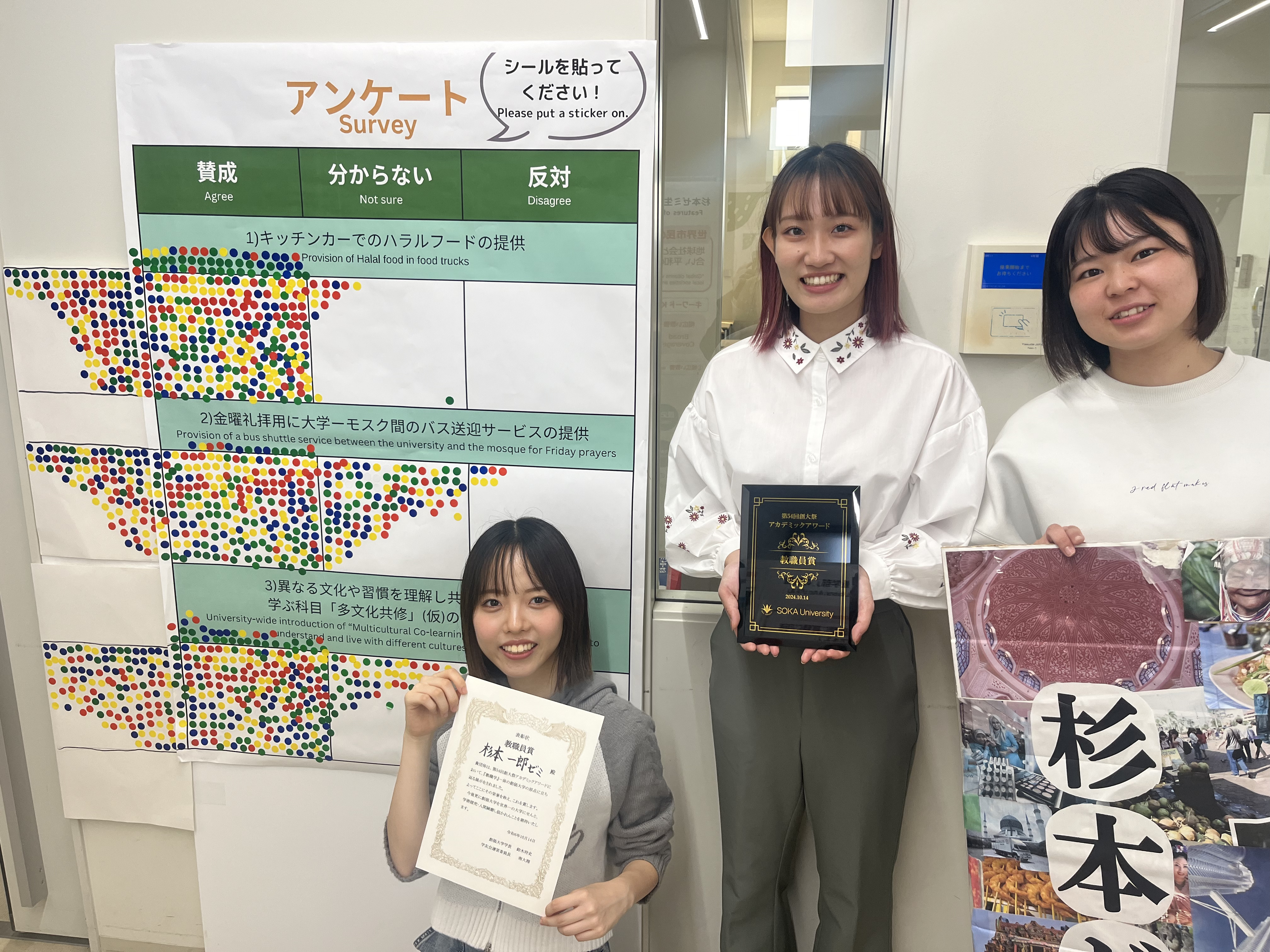
Spreading Swahili and African culture: The history of friendship woven by the Pan-African Friendship Association

Revitalizing Hachioji, the university's "hometown," with the students' youthful energy, ideas, and drive

